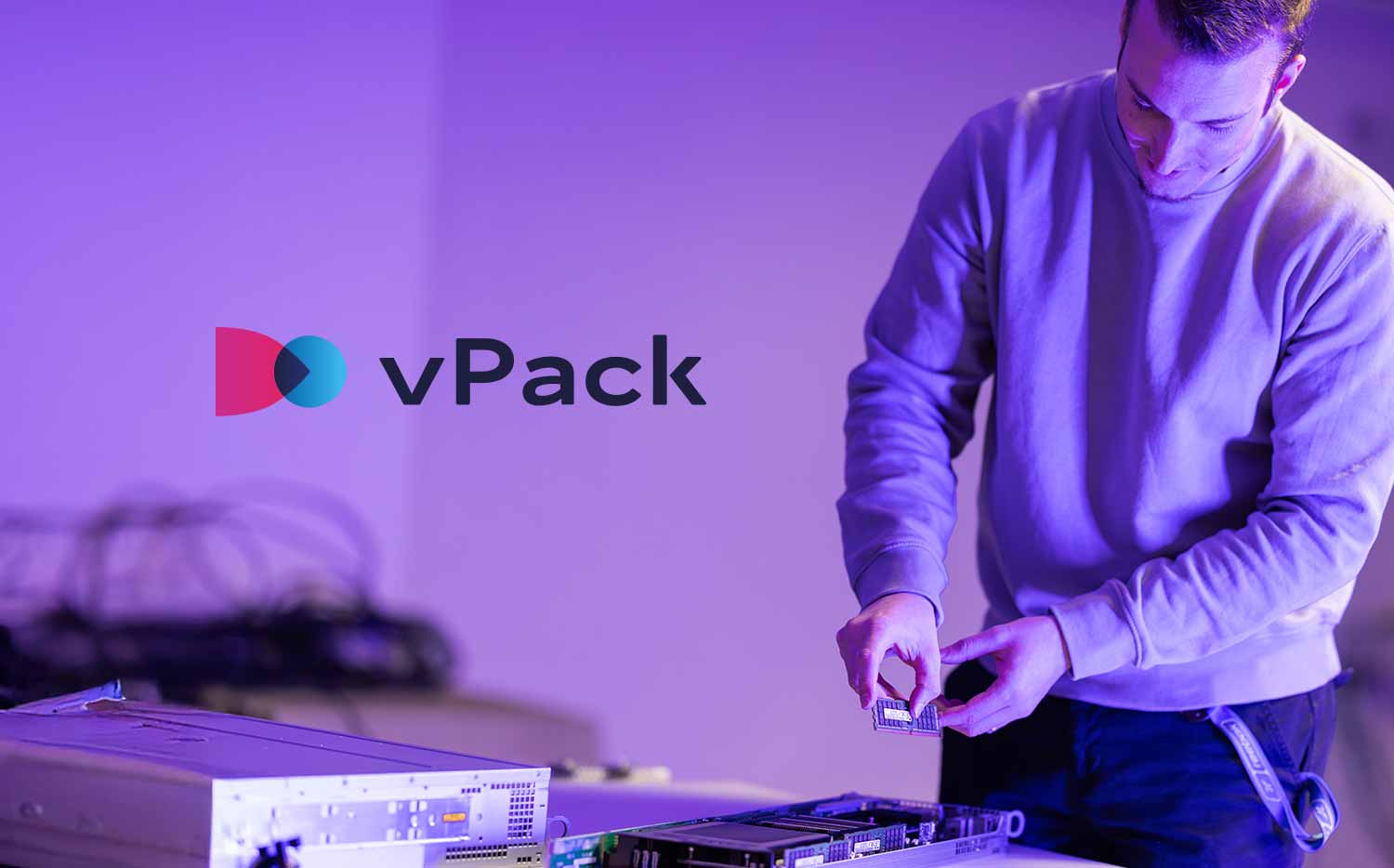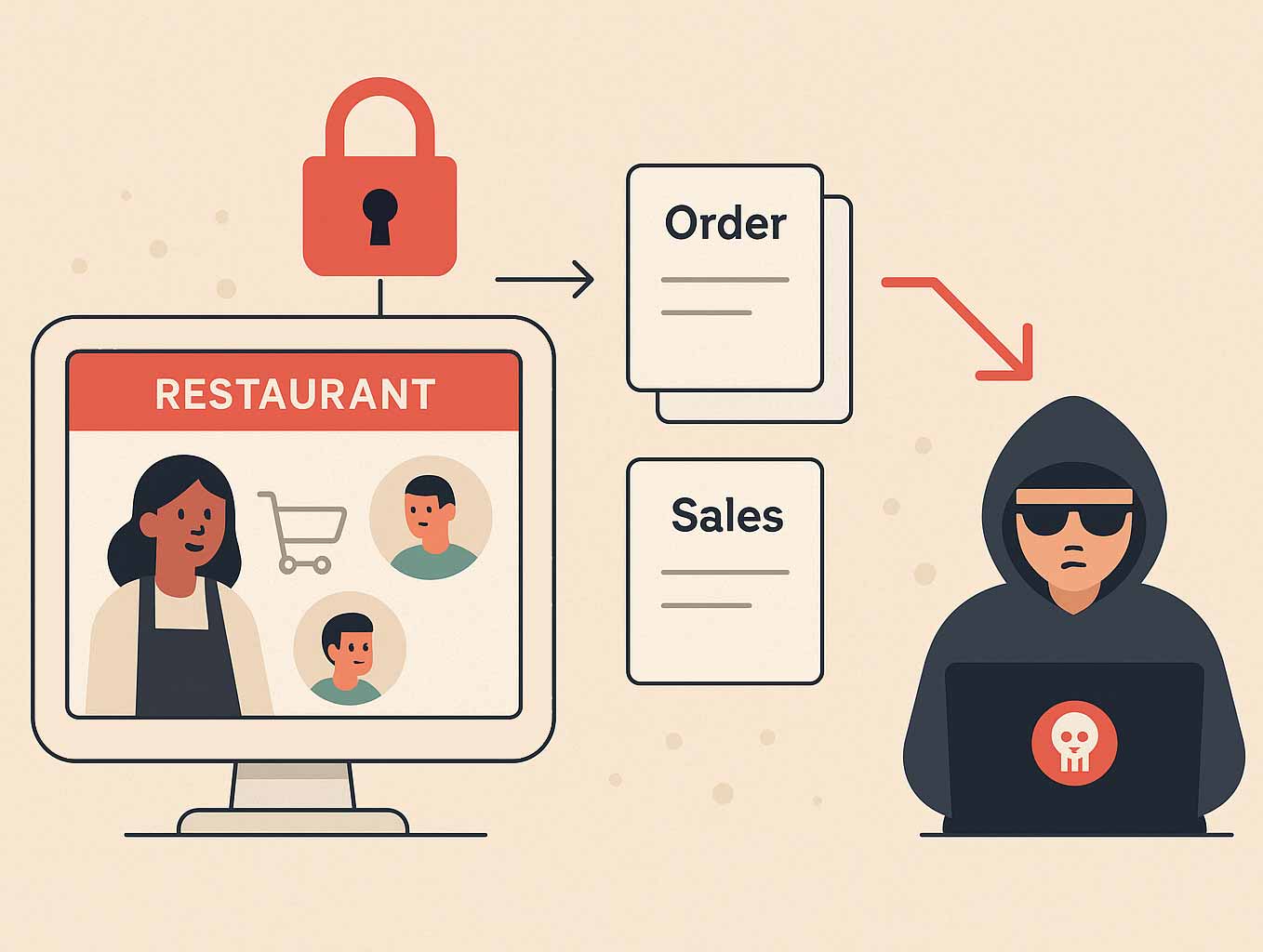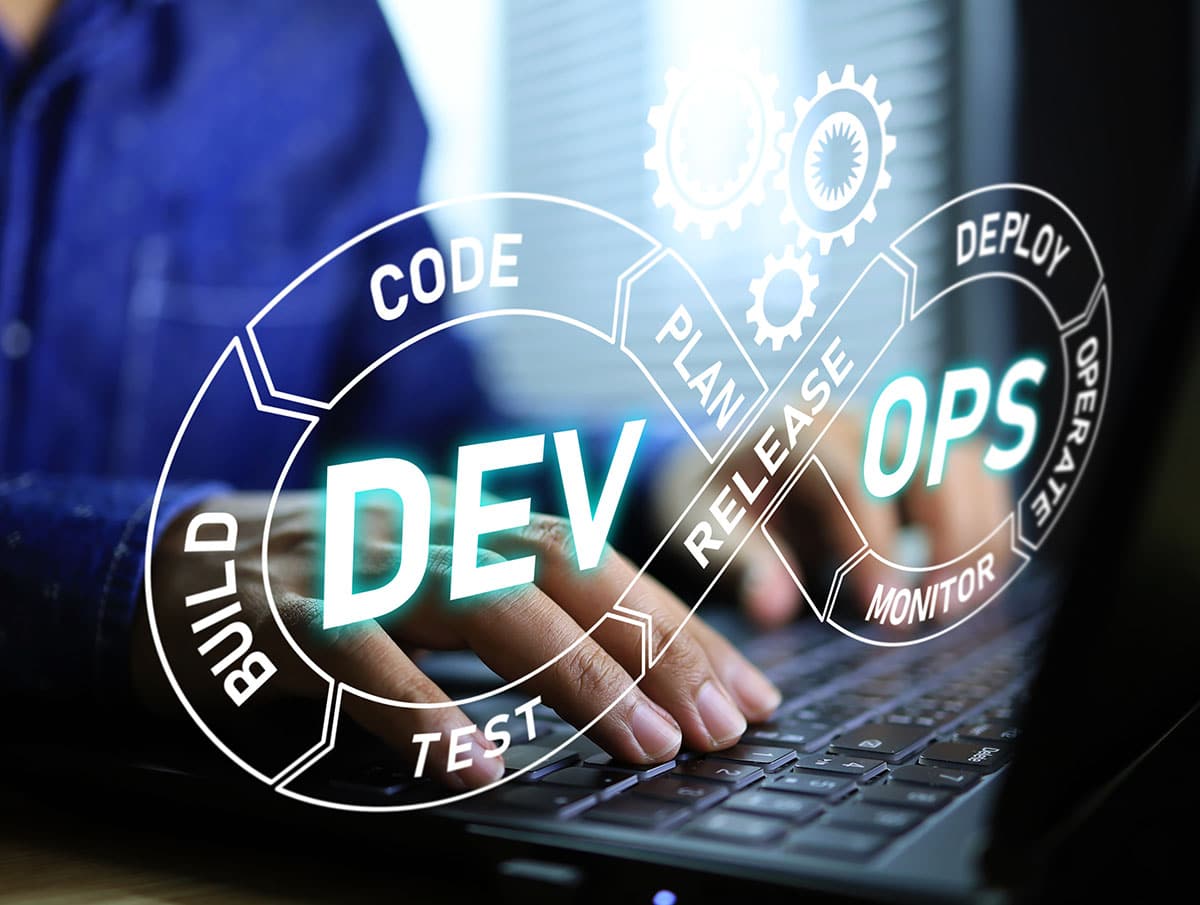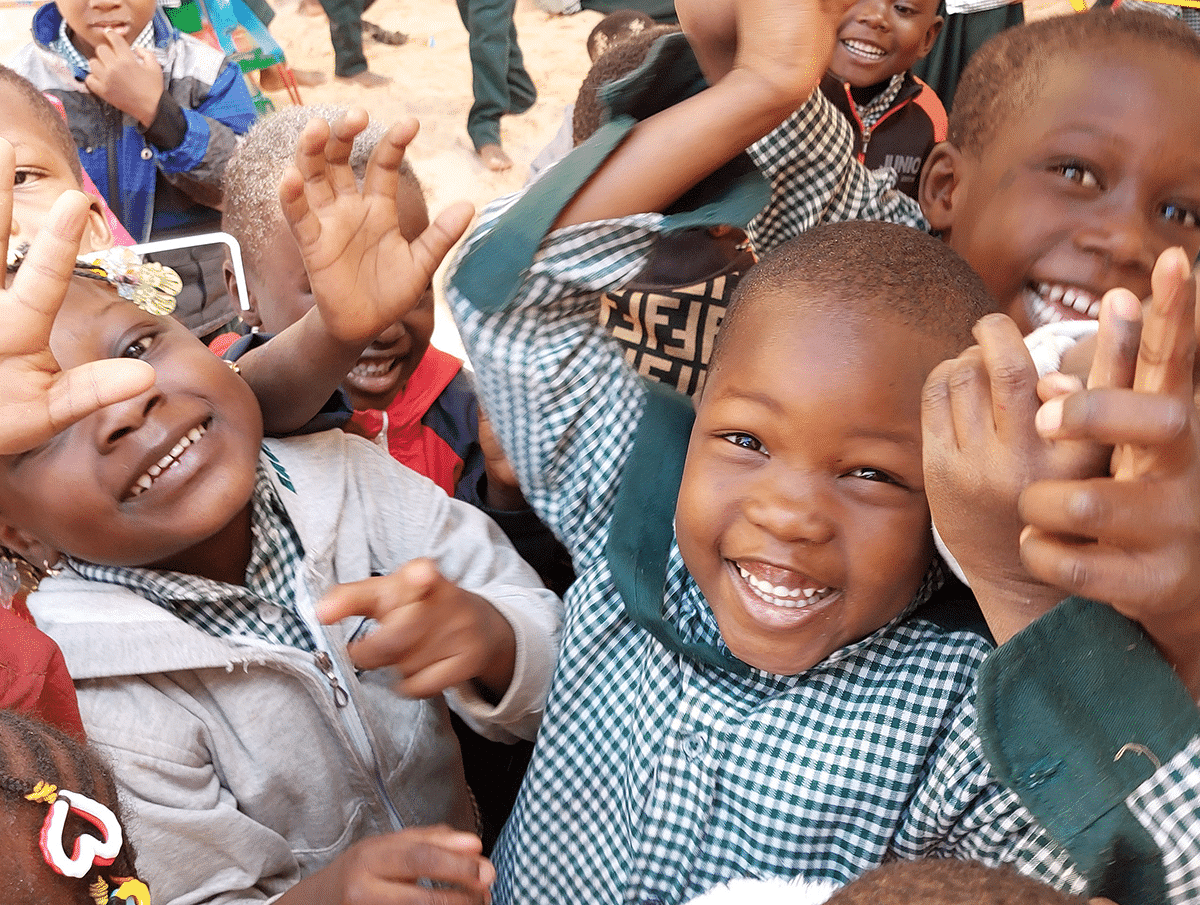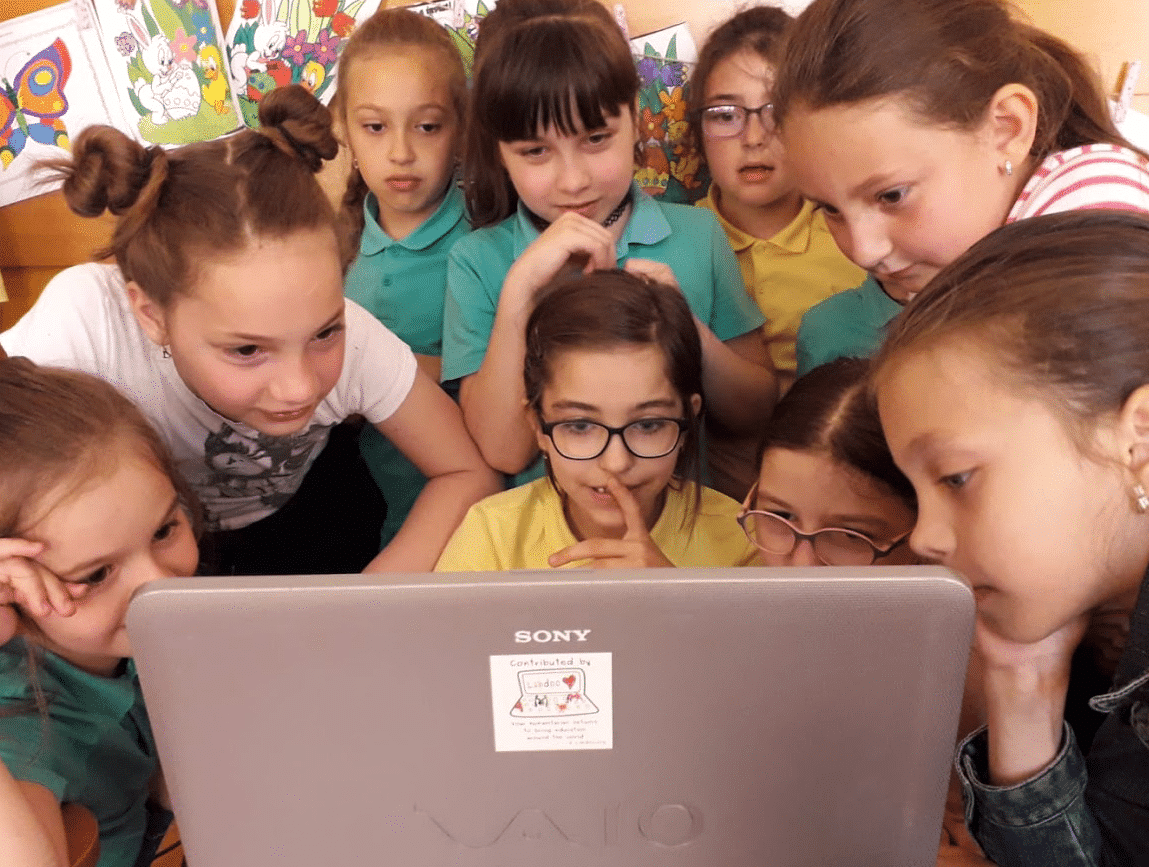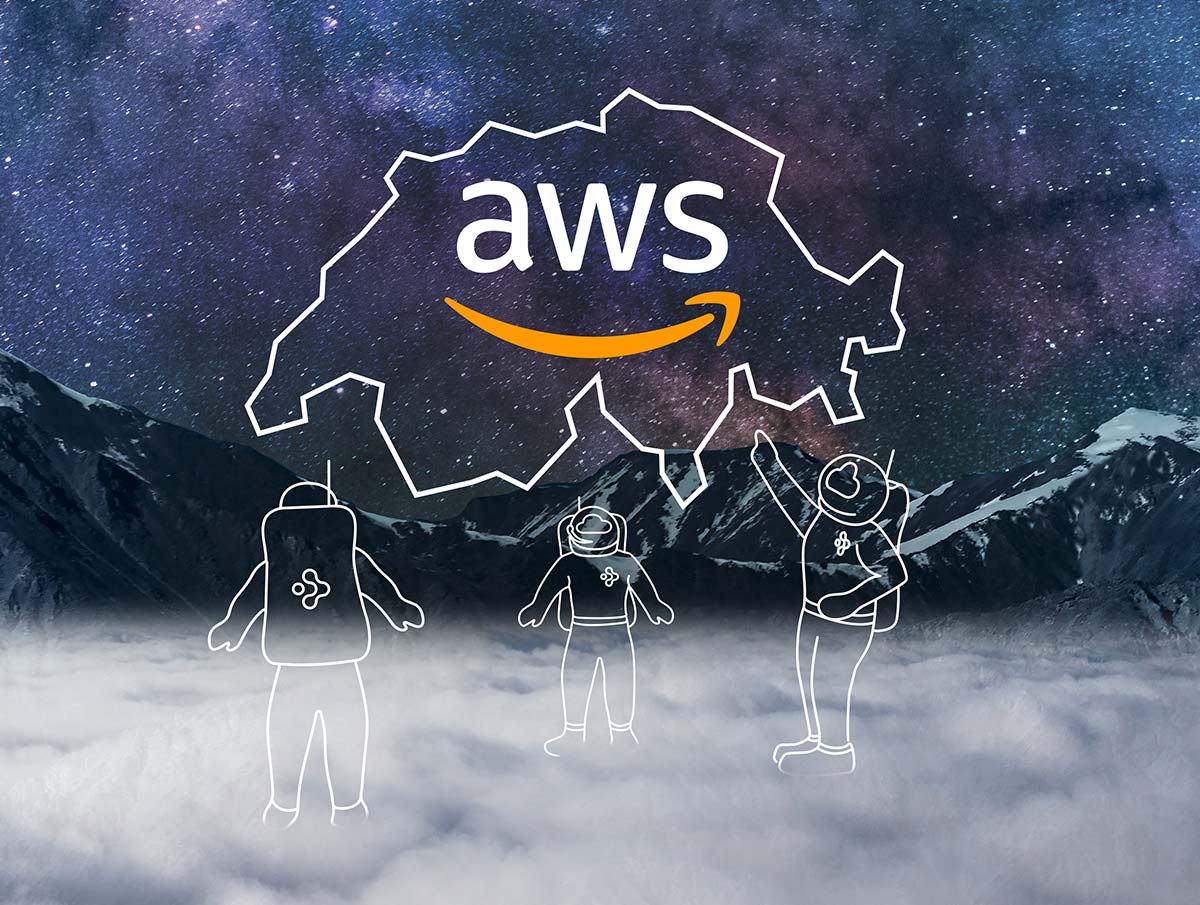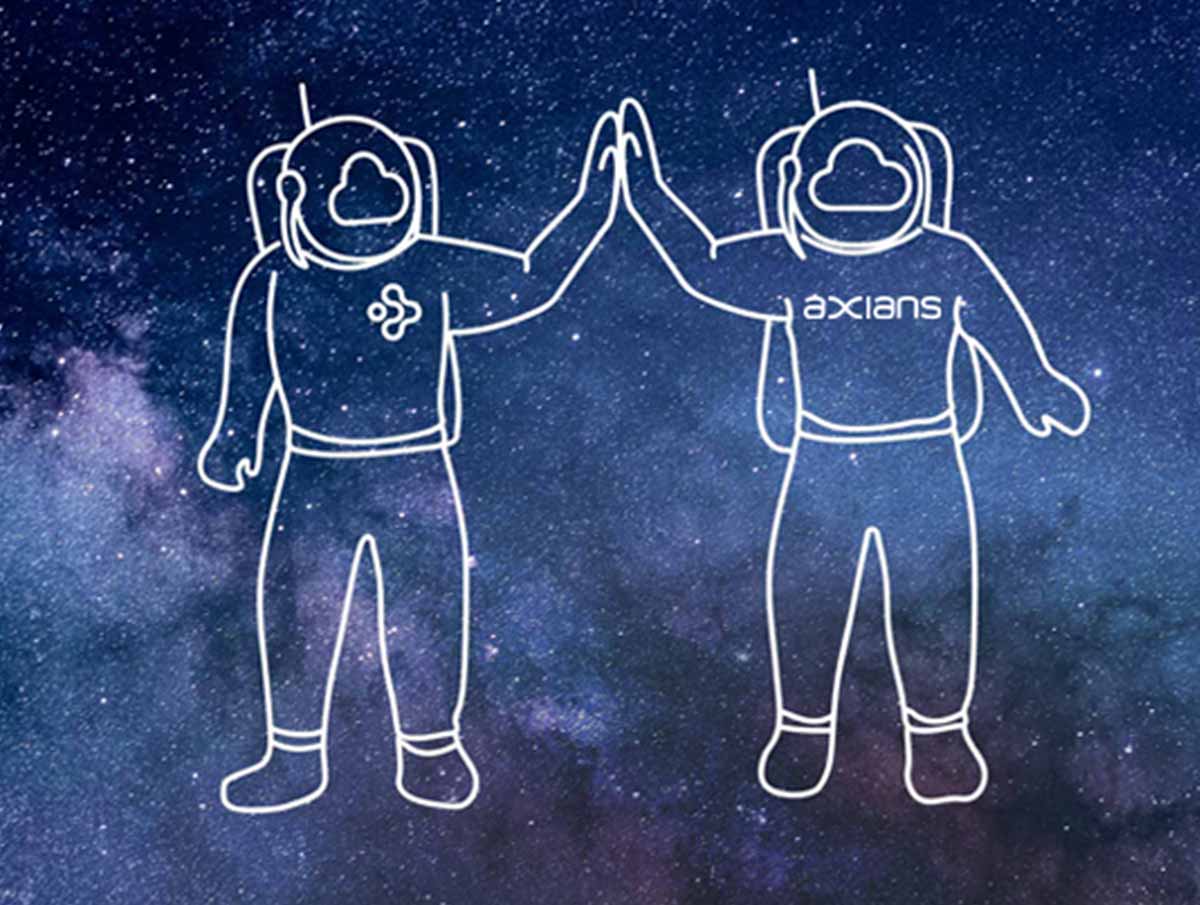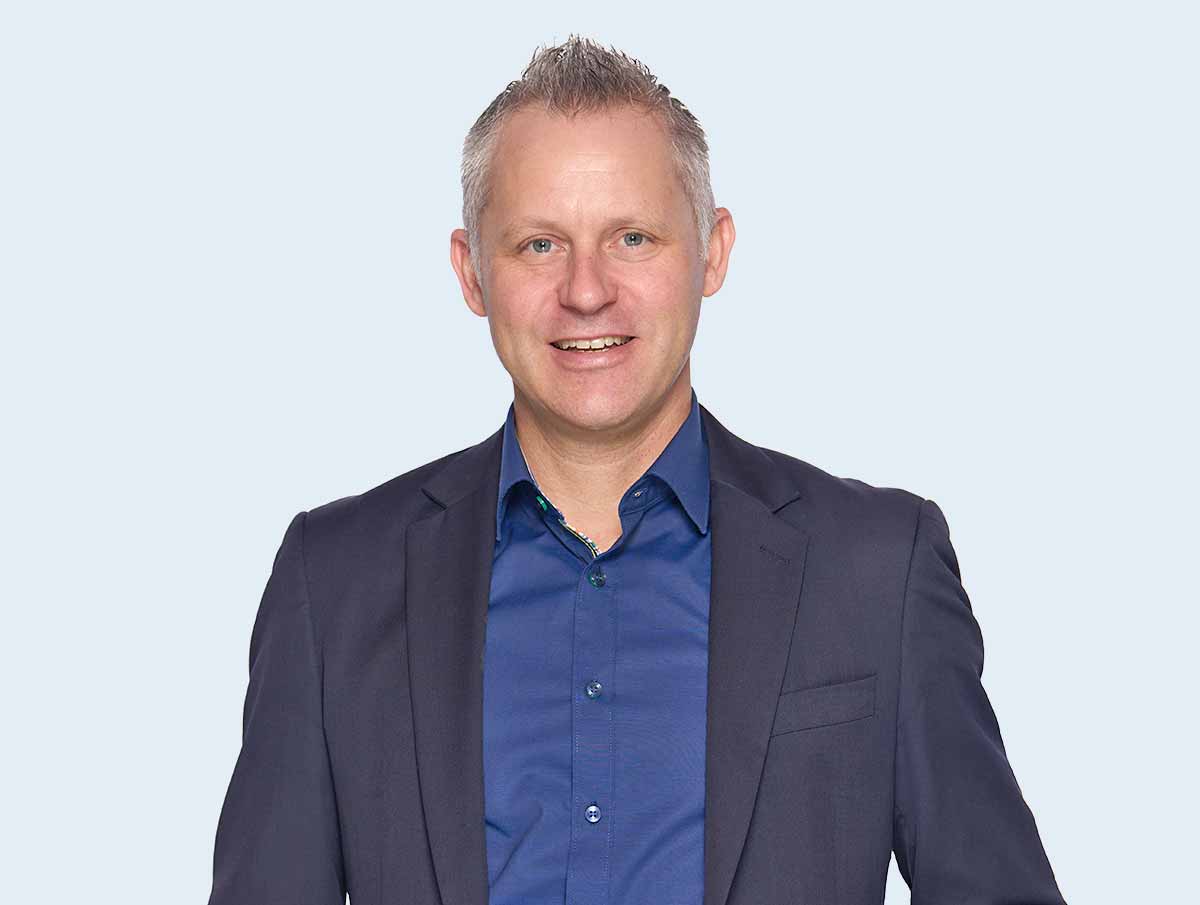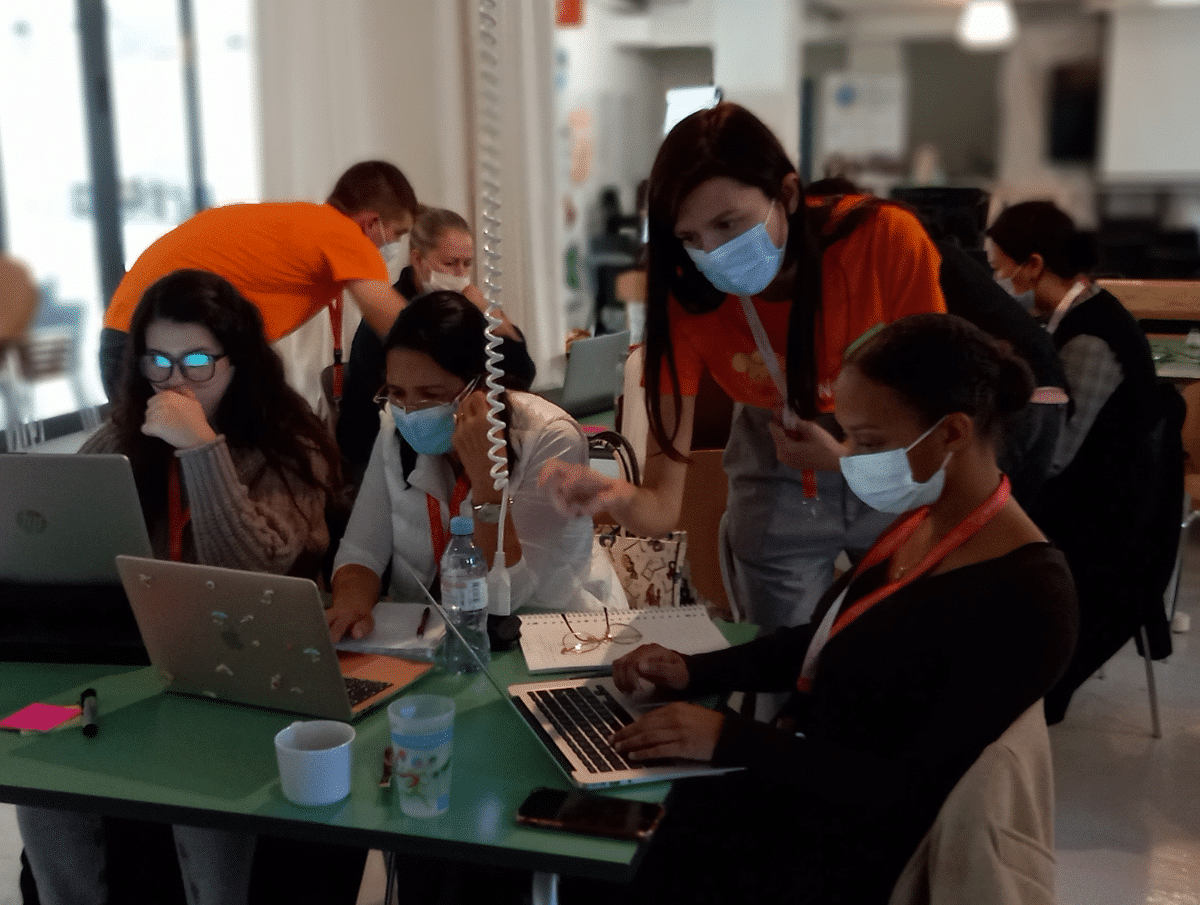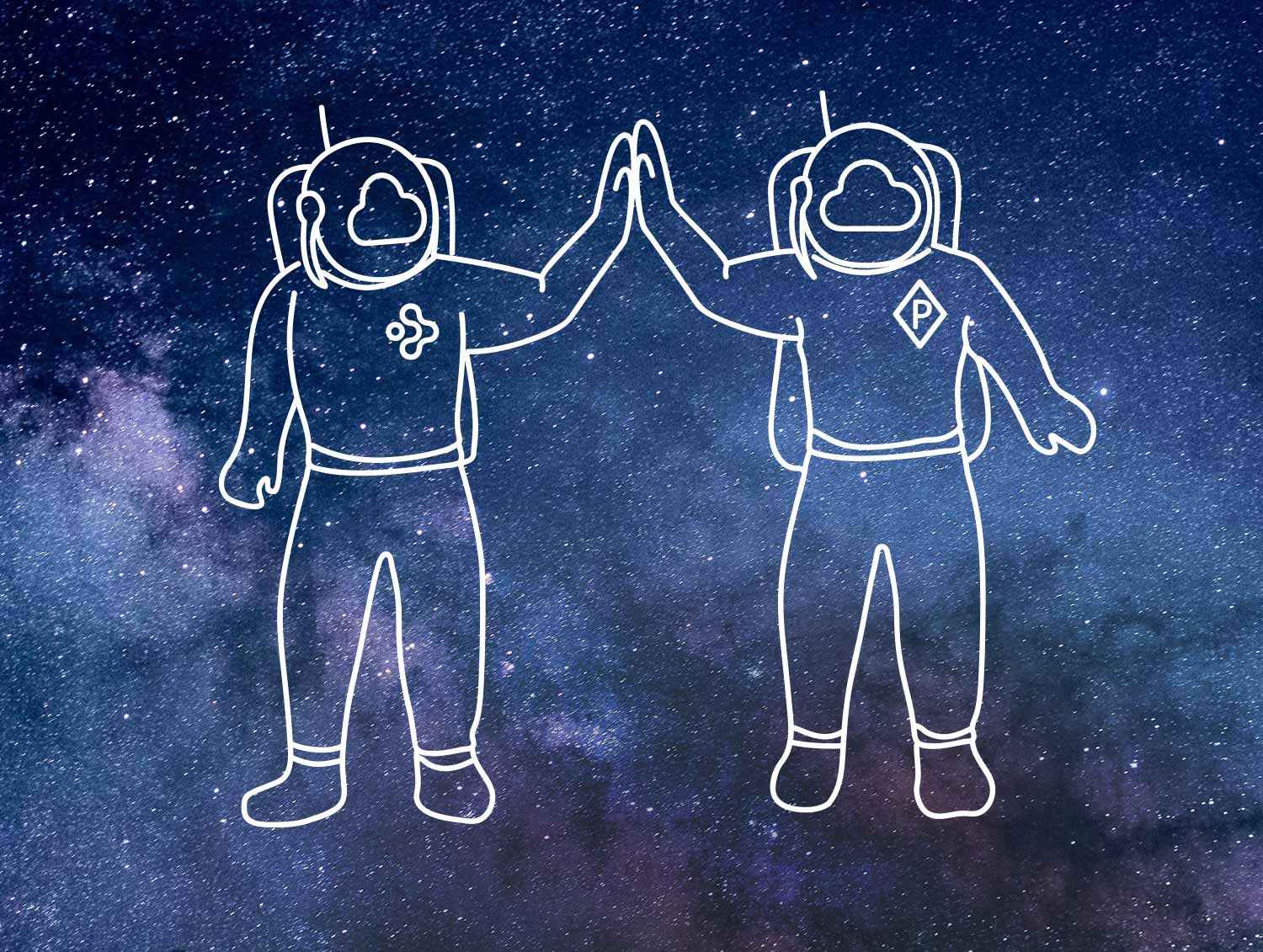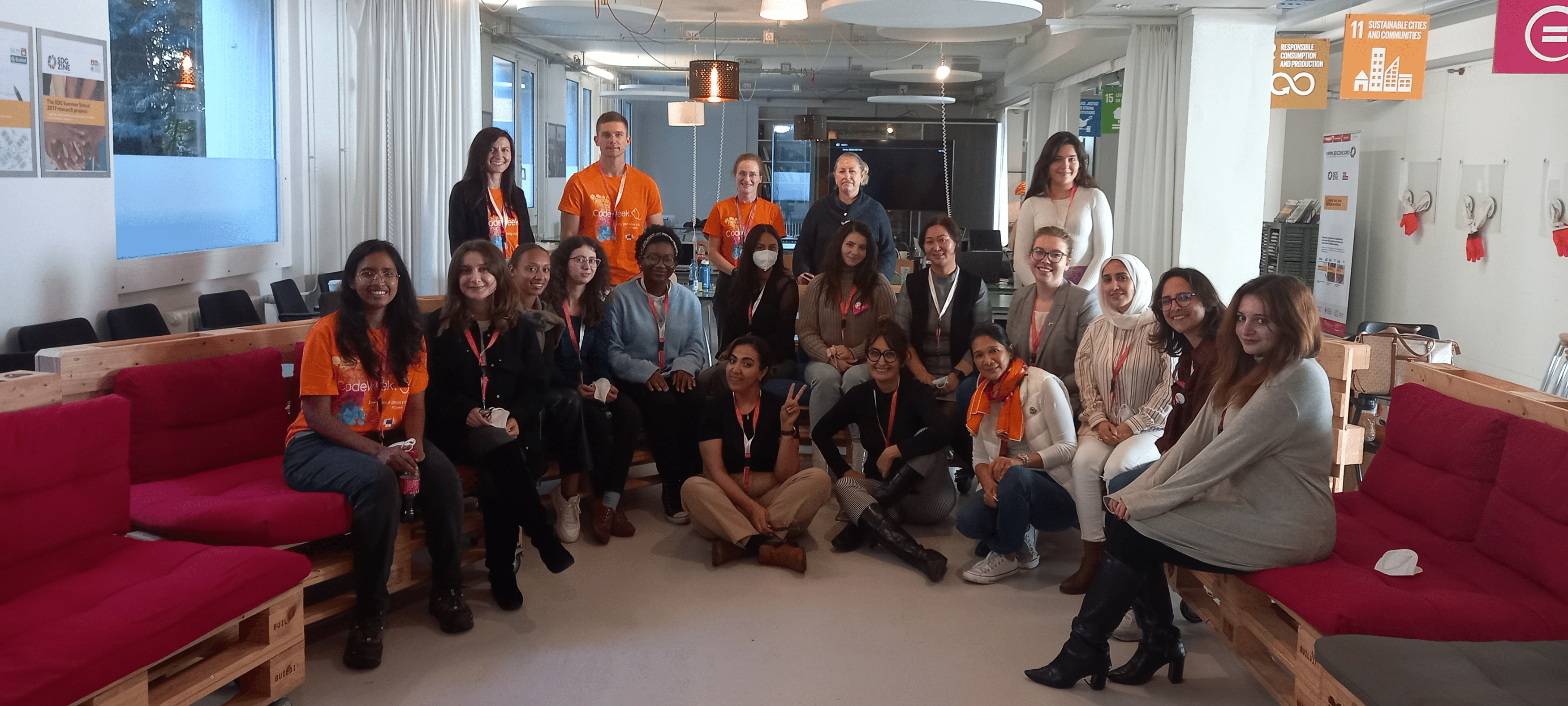
Interview with Ellen Walker, founder of RightsTech Women (RTW)
Ellen Walker has been shaping RightsTech Women for more than 5 years. 25 June 2018 was when RTW was officially founded as a nonprofit association in Geneva, Switzerland. In 2022, Amanox decided to support organization RightsTech Women with an end-of-year monetary donation. Now, almost one year later, we wanted to know from Ellen, how the association is doing today and how the money could help in the development.
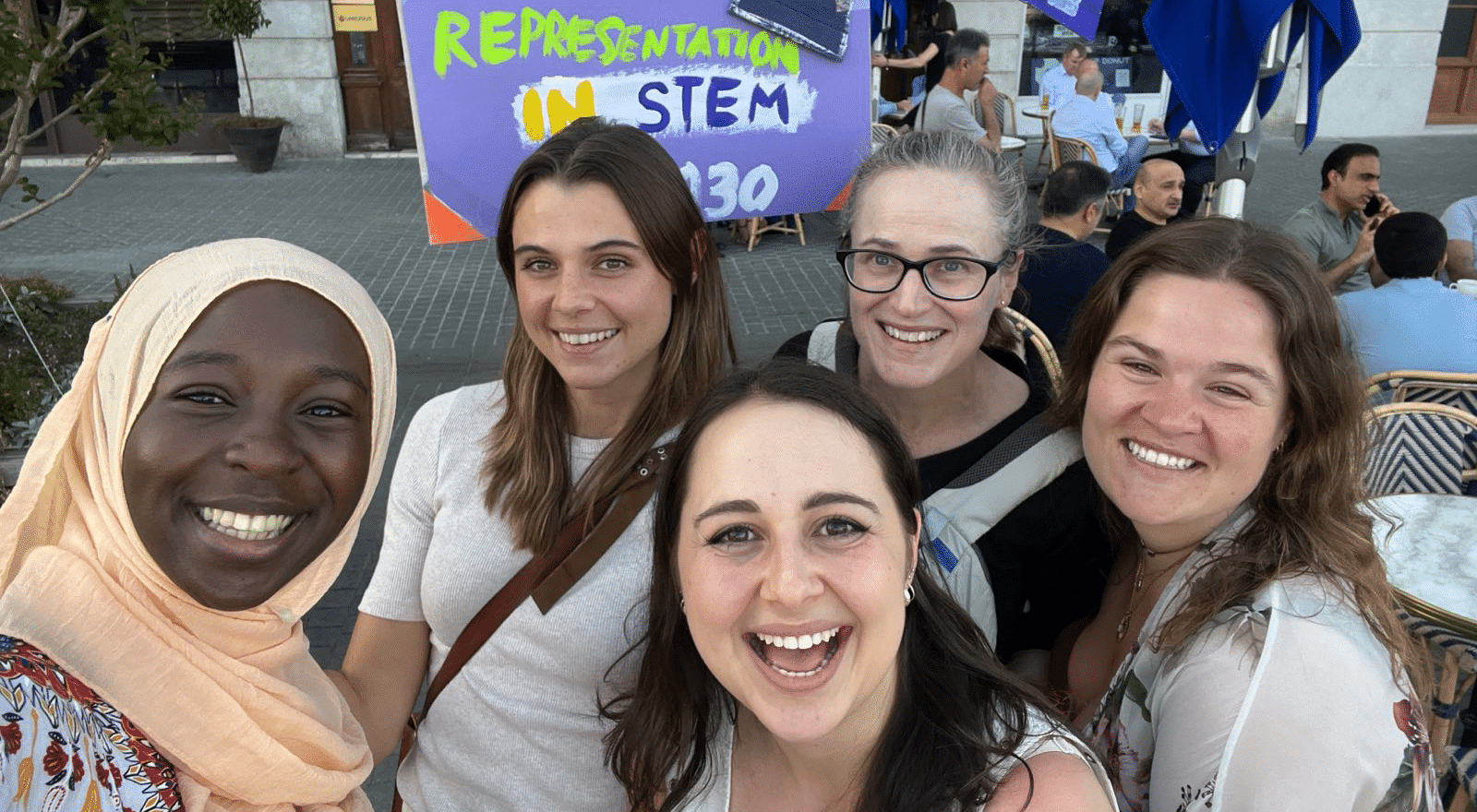
What is RightsTech Women's ambition?
Our main mission is to get more girls and women into STEM (Science, Technology, Engineering, and Mathematics) education and careers. We’re trying to reach equal representation of women in STEM by 2030. This is ambitious because currently, we are far off from this number in a lot of countries. We are starting by targeting learners in 33 countries in 5 regions selected based on data. We have research that we are getting ready to publish as soon as we can.
What are some activities that RTW is doing today?
We are building STEM skills for women and girls through different trainings, including data science, robotics and programming. Our last tech training, developed with partners during COVID, is on using satellite data to understand climate change, using the Google Earth Engine platform. During trainings, we generally ask the coaches to share their experiences with the learners in mentorship sessions. These are valuable to the learners to discover small, do-able steps for their learning and career paths. Instead of having only a big, vague goal like, ‘become a programmer’, we help them look at “What are the next little steps I can take?”, and tips and tricks for success in education and their work path.
We have also started to do skills development projects with tech companies. For example, we are currently working with a one tech company as well as one of its suppliers to reskill women at the supplier, to help boost the advancement of women in tech there.
Are women the only ones concerned by the unbalanced representation in STEM related industries?
It’s a topic that should be top of mind for everyone. There is enough room for everyone. It’s not that we are trying to get women to replace men. Instead, we encourage employers to bring in more women, and to reskill existing female employees who are interested in reskilling, to reach a more balanced situation in their STEM employment.
Picture launching a rocket from earth. If you're off by a couple of degrees, it might not look so bad when you are at earth’s surface. But when you reach outer space, the distance you are off will be really big. What is happening right now is that the number of tech jobs is growing - the number of jobs where you need these skills is growing. But we are off, in the representation of girls and women. In Switzerland, the Federal Statistical Office (BFS) Federal Statistical Office (BFS) indicates 24’948 women working in information technology and services (Activités informatiques et services d’information) as of 2023 Q2. This number accounts for 20.9% of the total workforce (full-time equivalents) in this sector.
So it takes many initiatives and people working together to change the representation of women in IT professions in particular.
On the topic
More detailed statistics on women in the tech industry in Switzerland from 1991 to 2022 can be found here.
As a nonprofit association you receive donations, like the one from Amanox. How does the donation actually help the organization?
Let’s take the obvious example here, last year’s donation of Amanox. This helped on multiple layers, to:
- cover costs of its first part-time staff, who works with the board to develop the organization, plan and implement its activities;
- cover essentials like RTW’s Zoom license, insurance and other basic costs to operate;
- provide support to the delivery of an educational program free for schools in Switzerland during the 2022-2023 academic school year, namely the AWS GetIT program for schools, benefiting children 12-14 in the Swiss cantons of Geneva, Schaffhausen, Ticino and Vaud. The program helped children discover how to design an application for the good of their community, and participating schools could participate in a national competition judged by AWS employees. An all-girls team from the International School of Schaffhausen earned first place in the competition, coached by AWS employees;
- do the scoping and planning phase of a new training program to re-skill female factory and other workers at a large tech company in Czechia, given rapid changes to today’s workplace (in progress);
- plan and implement two trainings on ‘Using Satellite Data to Understand Climate Change’, one for children at the International School in Geneva, and the other for girls and women aged 14 and older in the Geneva area, which will take place at CERN IdeaSquare (in progress)
Amanox’s support and that of our other partners and collaborators were crucial to our being able to carry out these activities up to now. We look forward to reaching more girls and women around the world with impactful training, with the generous support of our partners. Thank you again for this precious support, from the bottom of our hearts!
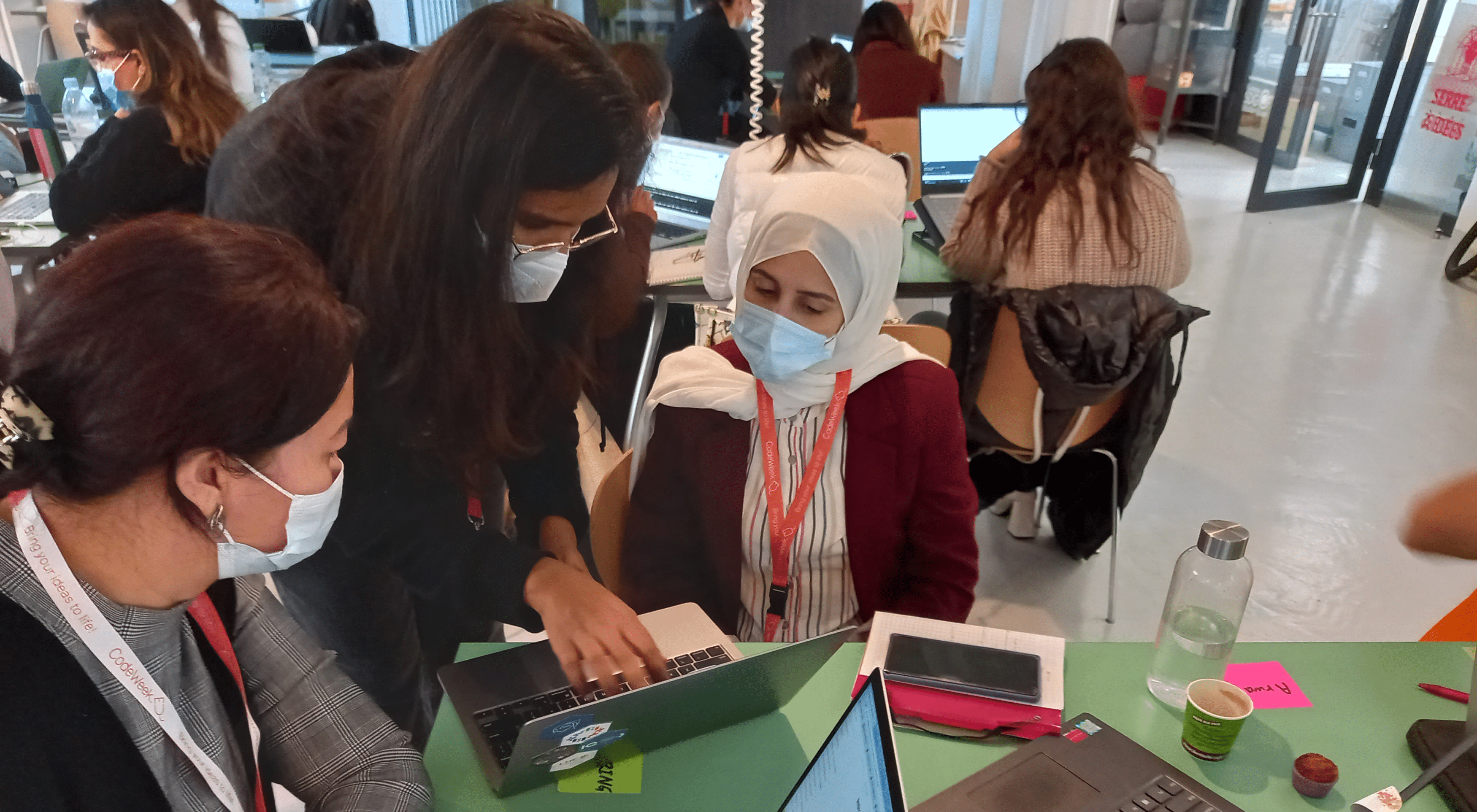
What are the ways that RTW identified for reaching STEM equity by 2030?
It is a global problem; it’s not just Switzerland where under-representation is an issue. But it depends on whether you are talking about education or employment and which areas within STEM and which country you are looking at.
In education, we believe that countries and employers need to support a two-pronged process to achieve parity in STEM by 2030: Girls and women should be encouraged to pursue formal STEM studies and women who are already working should be retrained in the required STEM skills. To do this, we work with women who have no formal training in technical skills and who want to discover new skills or build on their existing ones. Anyone looking to retrain can think about how a new skill could benefit their work or help them to progress in the workplace.
On the employment side, we need to find women who are already trained for technical jobs and promote them, and we need to retrain other working women.
A July 2023 McKinsey study (for the U.S) indicates that women were 1.5 more times likely to have their jobs affected by generative AI, while an ILO report points to an increase in jobs. Although women will not be the only ones affected by this change, overcoming cultural biases among women, especially in the workplace, remains crucial. I, myself have had to overcome biases about my own learning. This is why I call myself a tech learner. I want to encourage more women and girls to consider themselves tech learners, too.
RTW passed the 5 years bar, congratulations! There must have been a lot of ups and downs. How did you do it?
Thank you! We've achieved a lot, and I'm proud of it! Starting a nonprofit during a global pandemic wasn't easy, and I’ve thought about taking another path. But my passion lies in creating a lasting impact for girls and women globally, addressing challenges in STEM and human rights. I believe this is the best way I can help the most women around the world today, and their communities who will benefit from their skills and problem-solving.
Our approach to training is innovative, benefiting countries, employers and women alike. We have bridged gaps and introduced fresh ideas in the gender equality space. The startup process is challenging, but our dedicated team of staff, a commited board and volunteers from organisations such as CERN Women in Technology and our supporters keep us inspired.
Witnessing the growth of girls and women in our programs drives us forward, as we aim to ensure their equal access to economic resources and knowledge.
We also unintentionally influence others through our partnerships, motivating them to acquire new skills. I believe in continuous learning, and it's something I encourage wholeheartedly. Just start!!
What are the next steps for RTW in fulfilling goals?
Our five-year strategy includes training girls and women in technology and human rights, lobbying at the United Nations and more research. To do so, we need the necessary staff and resources. We want to expand our programme to reach 500,000 girls and women in 33 countries. Individuals and employers can show their support by finding out about our work and sharing this information with their networks, making a donation or engaging their employees as technical coaches.
We will also do UN advocacy with and for them to share their stories of what is working for them and not working for them, in terms of their human rights and STEM careers. This will not only allow us to share difficult stories that can help build empathy and understanding, but also share success stories and solutions that work. Not only women but men also can be big champions of diversity and role models on this topic for other people at their workplace. We know a lot of men are already doing that so let’s keep building on those rewarding efforts, too. The more ideas, the better.



